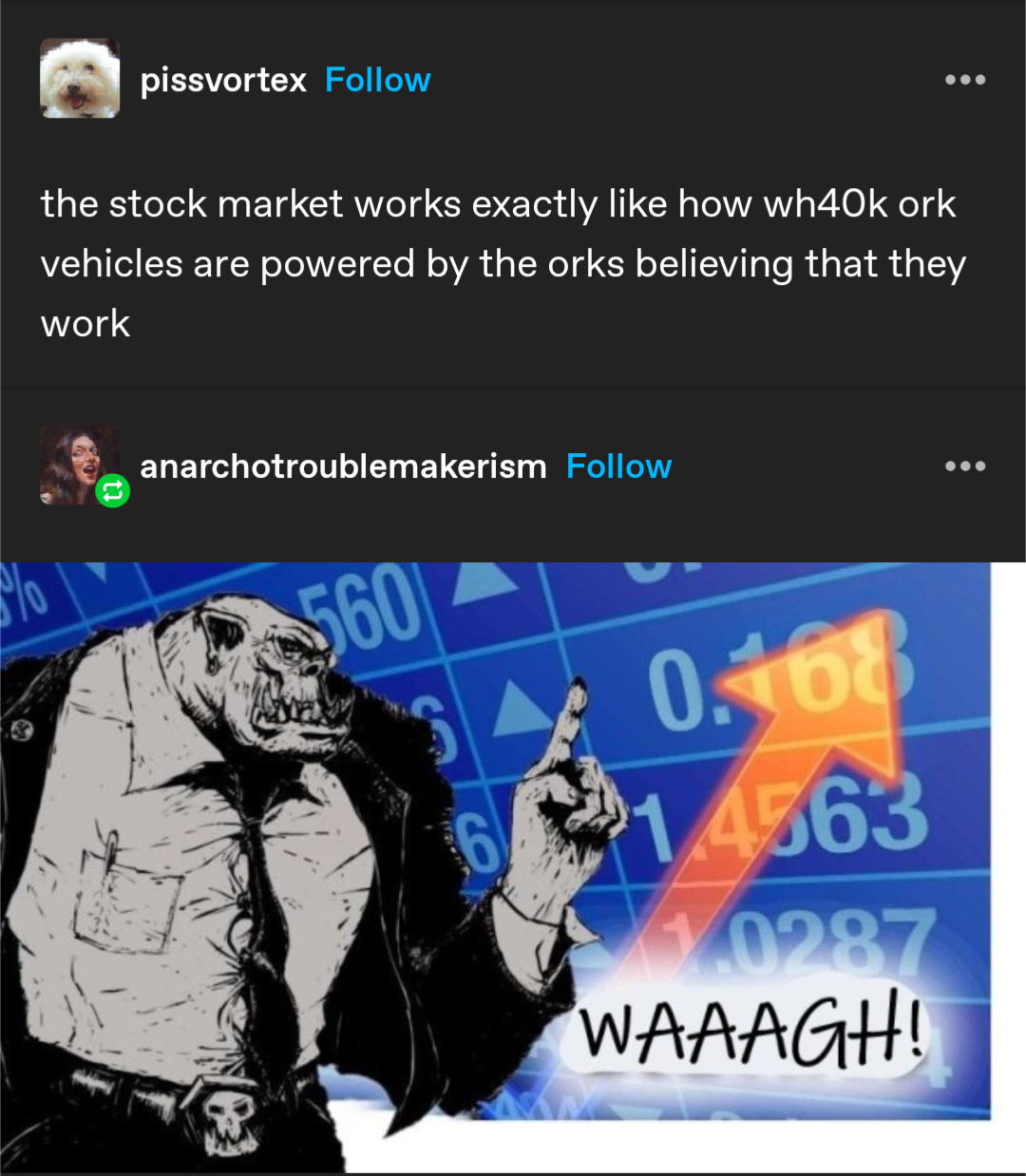this post was submitted on 28 Oct 2024
673 points (98.4% liked)
Microblog Memes
6531 readers
5576 users here now
A place to share screenshots of Microblog posts, whether from Mastodon, tumblr, ~~Twitter~~ X, KBin, Threads or elsewhere.
Created as an evolution of White People Twitter and other tweet-capture subreddits.
Rules:
- Please put at least one word relevant to the post in the post title.
- Be nice.
- No advertising, brand promotion or guerilla marketing.
- Posters are encouraged to link to the toot or tweet etc in the description of posts.
Related communities:
founded 2 years ago
MODERATORS
you are viewing a single comment's thread
view the rest of the comments
view the rest of the comments

Imagine you have 10 stocks worth $10 each.
Scenario 1: There is $1 dividend per stock. You now have 10 stocks worth $9 each for a total of $90 in stocks and $10 in cash.
Scenario 2: There is no dividend but you decide to sell 1 stock, you now have 9 stocks of $10 for a total of 90$ in stocks and $10 in cash.
These scenario's are equivalent unless the stock wasn't priced correctly.
This is the stupidest thing I've read in a very long time.
Why do you think it works like that?
Because that's how the stock market works, the price of a stock is the current value of assets (including cash) + expected earnings (with some correction factors for risk and time). If the company pays out $x of cash it's $x worth less. You might not always see it it the stock price because expected future dividend payments are also already priced in.
How do you think it works?
Why would anyone buy a stock that will never pay a dividend? The company is worth money because they pay a dividend, not despite it.
No, there are many different kinds of stocks with different terms. Stocks are an asset with value, regardless of whether or not dividends are paid out. It's very commonly the case for shares to be issued with no dividends paid because profits are reinvested back into the company with the goal of increasing the share price for some future massive liquidation event (like an acquisition).
Shares also represent ownership in a company and thus their value is also in the leverage it can give potentially give you in said company.
There are plenty of companies that never pay dividends, yet people buy them.
II struggled with this as well for a while. You can look at it this way, they are worth money because they could pay dividends, but they don't actually have to. Your bar of gold is worth a certain amount of money equal to the money you could sell it for, and your money is worth something because you could buy something with it.
(Most) stocks represent partial ownership (read: control) of a company and most of their value is derived from that.
For an extreme example: if the stock price were to drop below the amount of money that could be made by just selling off all of the assets, then someone would (in principle) just buy all the shares, sell the assets and make a profit.
Each share represents a small bit of control over the company and their assets.